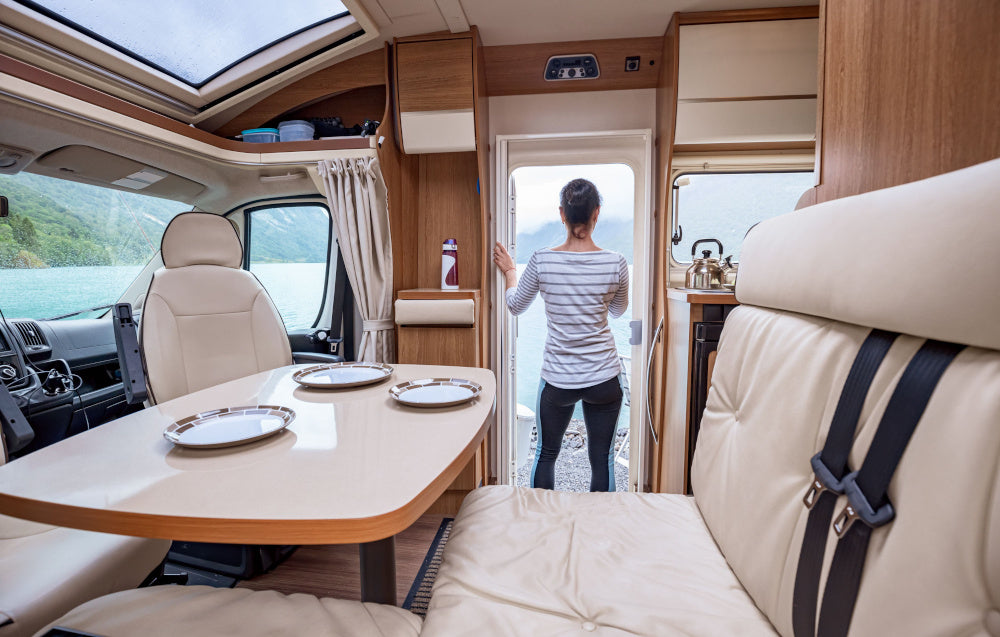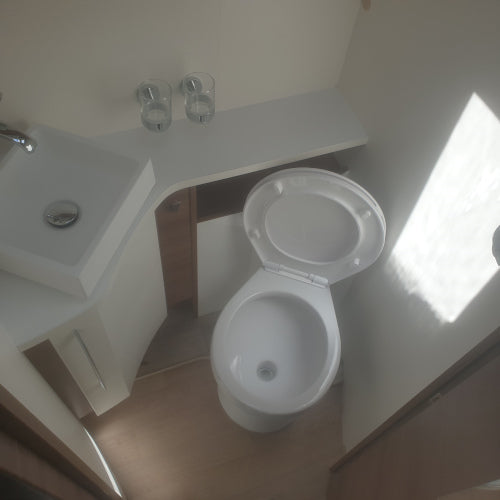Why Invest in a Solar Fridge over a 3 Way Fridge?

Ammonia fridges have traditionally been very popular in motorhomes and caravans, with their original design dating back to the 1890s. However, they require heat to generate cold, which makes them inefficient compared with the modern solar alternative and the use of gas has inherent risks and costs.
Below, we draw a comparison between ammonia and solar fridges, highlighting some key advantages and disadvantages to consider before making this investment:
Advantages of 3-Way Fridges:
Advantages of Solar Fridges:
Below, we draw a comparison between ammonia and solar fridges, highlighting some key advantages and disadvantages to consider before making this investment:
Advantages of 3-Way Fridges:
- They are quiet, so they are popular in motorhomes and caravans. There are no moving parts in them, the operation is virtually silent except for the slight hiss of the gas burner. Apart from that, we cannot think of any other advantages.
- 3-way fridges require servicing regularly.
- Since they use a combination of gravity and heat to operate, they must be level to work properly. This is not always possible or practical in a motor home.
- They can be hard to ignite, especially if left unused.
- The 12-volt operation of the fridge relies on a heating element that draws about 8 times more energy than the latest compressor fridges. This means they can only be run on 12 volts while the engine runs.
- The 12 and 240-volt heating elements burn out and need replacing regularly.
- Due to the inefficient nature of 3-way fridges, plugging into your home's 240-volt AC supply and leaving the fridge on will substantially rack up the power bills.
- When fitting a new 3-way fridge to an existing motor home or caravan, the 2013 gas regulations must be met, and the vehicle must undergo GAS CERTIFICATION. This requires a gas practitioner to check the vehicle and all appliances, ensuring the vehicle meets the 2013 Gas Standards.
- The additional cost of fitting a gas fridge to meet the new regulations is substantial due to the vent and exhaust locations being predetermined by the 3-way fridge manufacturer. The location may not be altered, the warranty will be void, and/or the gas practitioner will not certify the installation.
- When purchasing a 3-way fridge, the correct vents must be fitted. The fitting and supply of these vents come at an additional cost to the appliance.
- While traveling, there is always a potential fire risk associated with running a 3-way fridge on gas. The fire risk is especially concerning while filling up with fuel at a fuel station.
- Existing installations may, in some cases, cause carbon monoxide fumes to rise into the sleeping compartments of the vehicle. If occupants experience headaches at night, the vehicle should be checked immediately or fitted with a CO2 monitor.
- A new installation is often more expensive than a combined solar system and solar fridge.
Advantages of Solar Fridges:
- Requires little or no maintenance.
- Are very easy to start; flick a switch!
- Solar fridges will work at an angle of about 30 degrees from the level.
- They are available in efficient 12 or 24-volt DC units, which require approximately 1 to 2 amps per hour to operate, depending on the fridge size.
- When plugged into your home's 240-volt AC system, the solar fridge will use less than the home fridge and draw energy through the solar system as well as the built-in charge system of the vehicle.
- Since the solar fridge runs on the vehicle's 12- or 24-volt system, it does not require certification. Therefore, solar fridges do not incur certification costs.
- Although fridge ventilation is essential, a more flexible approach to venting can be applied. A simple convection flow is required behind the fridge, but there are no predetermined vent locations prescribed by the manufacturers.
- There are no open flames required to run a solar fridge. Consequently, there is no potential risk of fume inhalation or fire-associated risks.
- A new installation is significantly less costly than a 3-way fridge. A solar system will need to be fitted to run a fridge and maintain the batteries, as long as it has been designed for this purpose.
- Since they have a compressor pump, there will be a small amount of noise. However, this will be no more than the house fridge in your kitchen.
- The installation wiring used for fitting must be of a high standard, with suitable cabling, a good quality solar system, and batteries; otherwise, the fridge will not function properly.


